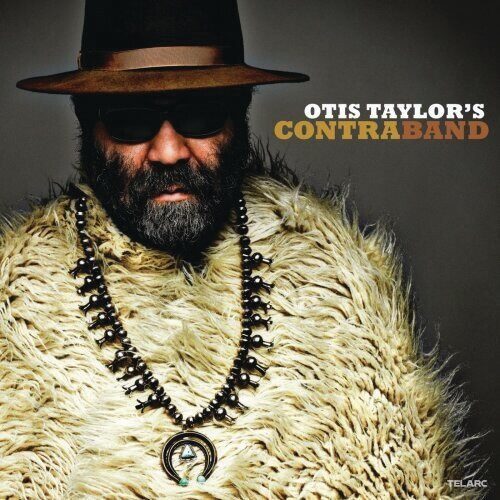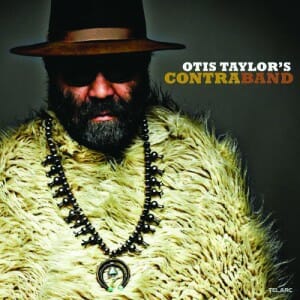
 Contraband is the latest installment in Taylor’s Trance Blues Project, his ambitious, over-a-decade-long effort to create a highly idiosyncratic style of music that sounds very little like the blues others are playing but somehow feels much closer to the core of the blues.
Contraband is the latest installment in Taylor’s Trance Blues Project, his ambitious, over-a-decade-long effort to create a highly idiosyncratic style of music that sounds very little like the blues others are playing but somehow feels much closer to the core of the blues.
The way Taylor usually describes it is that many of his songs borrow a technique from Western African music in which the song stays on one chord instead of changing. Since we usually judge the passing of time in a song by following its chord changes, we can listen to his songs for 10 or 15 minutes and not even realize that it hasn’t changed.
If you’ve ever listened to him, you know the product is more often than not an extremely interesting, raw, often quite dark, style of music, and this album is no exception. Taylor sings gruffly and plays the banjo and guitar on a set that clocks in at just under an hour without any fluff or filler. It starts out strong with “The Devil’s Gonna Lie,” helped by the remarkable pedal steel guitar of Chuck Campbell who plays on a few other tracks. Taylor is a master storyteller, not shying away from sensitive issues like the slave trade in “Contraband Blues” and race in “Blind Piano Teacher” about the relationship between a young lady of mixed racial origins and an older man.
Taylor often changes the dynamics of his songs dramatically, switching seamlessly from banjo romps like “Banjo Boogie Blues” or “Yellow Car, Yellow Dog” to the minimalist “2 or 3 Times” and “Open These Bars” to full band electric workouts on “Contraband Blues” and “I Can See You’re Lying.”
The highlight of the album is “Never Been to Africa”, another song in which Taylor’s storytelling ability is on full display. Backed by his guitar, an electric guitar, an organ, and some very light percussion, Taylor mournfully and convincingly sings: “Cold sweat running down my leg/ I can feel the gas running ‘cross my face/ Don’t need to walk, but I’ll fight anyway.” This song and the whole album feature some of Taylor’s best songwriting, grittiest vocals and most memorable instrumentation.






